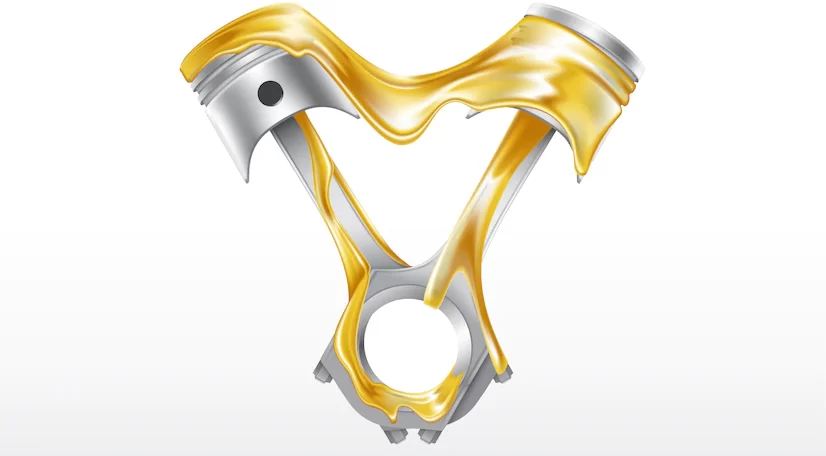All about Hypoid Gear Oil
- 0.0.1 Introduction
- 1 What Is Hypoid Gear Oil?
- 1.1 What Is the Difference Between Hypoid Gear Oil and Other Types of Gear Oil?
- 1.2 What Are the Benefits of Using Hypoid Gear Oil?
- 1.3 What Are the Potential Risks of Using Hypoid Gear Oil?
- 1.4 What Are the Common Applications for Hypoid Gear Oil?
- 1.5 What Are the Different Types of Hypoid Gear Oil?
- 1.6 What Is the Proper Way to Replace Hypoid Gear Oil?
- 1.7 What Are the Typical Gear Oil Change Intervals?
- 1.7.1 Conclusion
Introduction
Hypoid gear oil is a type of lubricant used to reduce friction in gear systems. It is specifically designed to lubricate hypoid gears, which are spiral bevel gears with axes that are at right angles to one another. Hypoid gear oil is a specialized type of gear oil that offers superior protection for hypoid gears, which are commonly found in automobiles, trucks, and other vehicles. In this article, we will discuss what hypoid gear oil is and why it is used.
What Is Hypoid Gear Oil?
Hypoid gear oil is a type of lubricant that is specifically designed for use in hypoid gear. Hypoid gears are spiral bevel gears with axes that are at right angles to one another. Hypoid gear oil is a specialized type of gear oil that offers superior protection for hypoid gear. It is formulated with additives that provide superior lubrication, reduce friction, and protect against wear and tear.
What Is the Difference Between Hypoid Gear Oil and Other Types of Gear Oil?
The primary difference between hypoid gear oil and other types of gear oil is the formulation. Hypoid gear oil is formulated with additives that provide superior lubrication, reduce friction, and protect against wear and tear. This makes it ideal for use in hypoid gears, which are commonly found in automobiles, trucks, and other vehicles.
What Are the Benefits of Using Hypoid Gear Oil?
The primary benefit of using hypoid gear oil is that it provides superior protection for hypoid gear. It is formulated with additives that reduce friction and protect against wear and tear. This can help extend the life of the gear system and reduce maintenance costs. Additionally, hypoid gear oil is designed to resist oxidation and breakdown, which can help provide long-term protection.
What Are the Potential Risks of Using Hypoid Gear Oil?
The primary risk of using hypoid gear oil is that it can be more expensive than other types of gear oil. Additionally, it may not be suitable for use in all gear systems. It is important to check the manufacturer’s guidelines to ensure that hypoid gear oil is appropriate for your application.
What Are the Common Applications for Hypoid Gear Oil?
Hypoid gear oil is most commonly used in automobiles, trucks, and other vehicles. It is also used in some industrial applications, such as in wind turbines and other machinery.
What Are the Different Types of Hypoid Gear Oil?
Hypoid gear oil is available in a variety of viscosities and formulations. The viscosity of the oil should be matched to the requirements of the application. Additionally, some hypoid gear oils are formulated with additional additives for improved performance.
What Is the Proper Way to Replace Hypoid Gear Oil?
The proper way to replace hypoid gear oil is to drain the old oil and replace it with new oil. It is important to ensure that the new oil is matched the requirements of the application. Additionally, the oil should be replaced at the manufacturer’s recommended intervals.
What Are the Typical Gear Oil Change Intervals?
The typical gear oil change intervals vary depending on the application and the manufacturer’s recommendations. Generally, gear oil should be replaced at least every 15,000 to 20,000 miles or every two years, whichever comes first. However, it is important to check the manufacturer’s guidelines to ensure that you are following the proper maintenance schedule.
Conclusion
Hypoid gear oil is a specialized type of gear oil that is specifically designed for use in hypoid gear. It is formulated with additives that provide superior lubrication, reduce friction, and protect against wear and tear. The primary benefit of using hypoid gear oil is that it provides superior protection for hypoid gears, which can help extend the life of the gear system and reduce maintenance costs. Additionally, hypoid gear oil should be replaced at the manufacturer’s recommended intervals to ensure optimal performance.


















